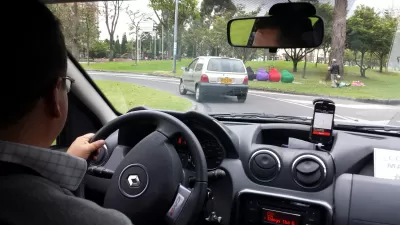Jason Kambitsis speaks with Bruce Katz, the founding director of the Brookings Metropolitan Policy Program, about his advocacy for taking a fundamentally different approach to urban development based on economic diversification.
While many might quibble with Katz's argument that cities have done well enough in providing the physical spaces necessary for well functioning cities, he makes a provocative argument for urban development based on the transformation of economic environments, rather than physical ones.
Eluding to examples of cities building their economies on a foundation of innovation and production, including New York, Northeast Ohio, and Seattle, Katz argues for the need for cities to move "away from the service and real estate sectors and...look toward the tradable economy for sustained growth."
According to Katz, the implications for planners and designers are profound. "Economy shaping is going require a new kind of placemaking...You can't just focus on housing and transit in the core of a city, you need to focus on the physical needs of manufacturing, development and the needs that go along with them. That will clearly have a huge effect not only on the city but regional level."
FULL STORY: Bruce Katz: Better Economic Structure Will Save the City

Maui's Vacation Rental Debate Turns Ugly
Verbal attacks, misinformation campaigns and fistfights plague a high-stakes debate to convert thousands of vacation rentals into long-term housing.

Planetizen Federal Action Tracker
A weekly monitor of how Trump’s orders and actions are impacting planners and planning in America.

In Urban Planning, AI Prompting Could be the New Design Thinking
Creativity has long been key to great urban design. What if we see AI as our new creative partner?

King County Supportive Housing Program Offers Hope for Unhoused Residents
The county is taking a ‘Housing First’ approach that prioritizes getting people into housing, then offering wraparound supportive services.

Researchers Use AI to Get Clearer Picture of US Housing
Analysts are using artificial intelligence to supercharge their research by allowing them to comb through data faster. Though these AI tools can be error prone, they save time and housing researchers are optimistic about the future.

Making Shared Micromobility More Inclusive
Cities and shared mobility system operators can do more to include people with disabilities in planning and operations, per a new report.
Urban Design for Planners 1: Software Tools
This six-course series explores essential urban design concepts using open source software and equips planners with the tools they need to participate fully in the urban design process.
Planning for Universal Design
Learn the tools for implementing Universal Design in planning regulations.
planning NEXT
Appalachian Highlands Housing Partners
Mpact (founded as Rail~Volution)
City of Camden Redevelopment Agency
City of Astoria
City of Portland
City of Laramie




























